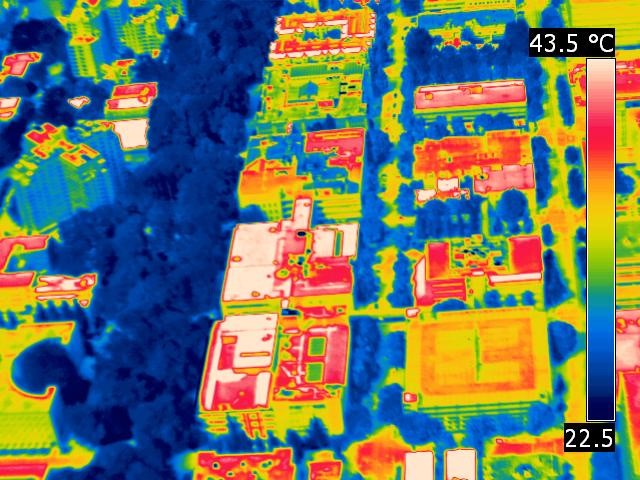Nigel Tapper talks urban heat in new video series
WA capacity building organisation New WAter Ways has just released a video series on urban heat.
Each of the five videos in the series covers a different aspect of urban heat:
- How urban heat affects the community
- How can we reduce heat in a city?
- What can community do to reduce urban heat?
- Why do cities get hot?
- What are the many benefits of green infrastructure?

The videos feature Professor Nigel Tapper from Monash University’s School of Earth Atmosphere and Environment, and an important contributor to the CRC for Water Sensitive Cities’ IRP2 (Work package 6: Economic valuation of urban heat mitigation) and IRP4 programs. Nigel also co-led Program B in Tranche 1 (Water Sensitive Urbanism) of our early research.
All five videos are now available to watch on YouTube:
Video 1: Urban heat affecting community
The first video covers the health impacts of heat waves and the heat vulnerability of urban populations. Nigel looks at the susceptibility variables for human health impacts, and the heat–mortality relationship in various cities throughout Australia.
Video 2: How can we reduce heat in a city?
In this video, Nigel discusses the urban heat mitigation produced from different scales of investment in urban greening and the significant cooling that can be achieved particularly when strategies are combined. He also explains why irrigated green infrastructure is one of the best things for city cooling.
Video 3: What can community do to reduce urban heat?
In this video, Nigel talks about how to improve our community’s resilience to urban heat and contribute to a cooler and greener community. He explains why the most obvious actions we can take are to plant more trees and provide opportunities to irrigate, such as harvesting water at home to irrigate lawns and vegetation. He also explains the importance of increasing the perviousness of a city.
Video 4: Why do cities get hot?
This video covers the main contributors to urban heat and key drivers. Nigel explains that lack of evaporation from impervious surfaces in cities prevents the release of heat into the atmosphere, making cities hotter than rural areas. He also looks at the link between urban heat and climate change.
Video 5: What are the many benefits of green infrastructure?
To round out the series, Nigel discusses the role of green infrastructure, water sensitive urban design (WSUD), and trees in addressing adverse climatic conditions of urban areas. He explains the importance of keeping these assets well irrigated and how to achieve that even with water shortages, and answers the common question of whether exotics work just as well as native trees.
The video series producer, New WAter Ways, enables excellence in integrated water cycle management and builds capacity of government and industry practitioners. Shelley Shepherd, the Director of not-for-profit environmental consultancy, Urbaqua, runs New WAter Ways. For more information, contact Shelley at shelley@urbaqua.org.au